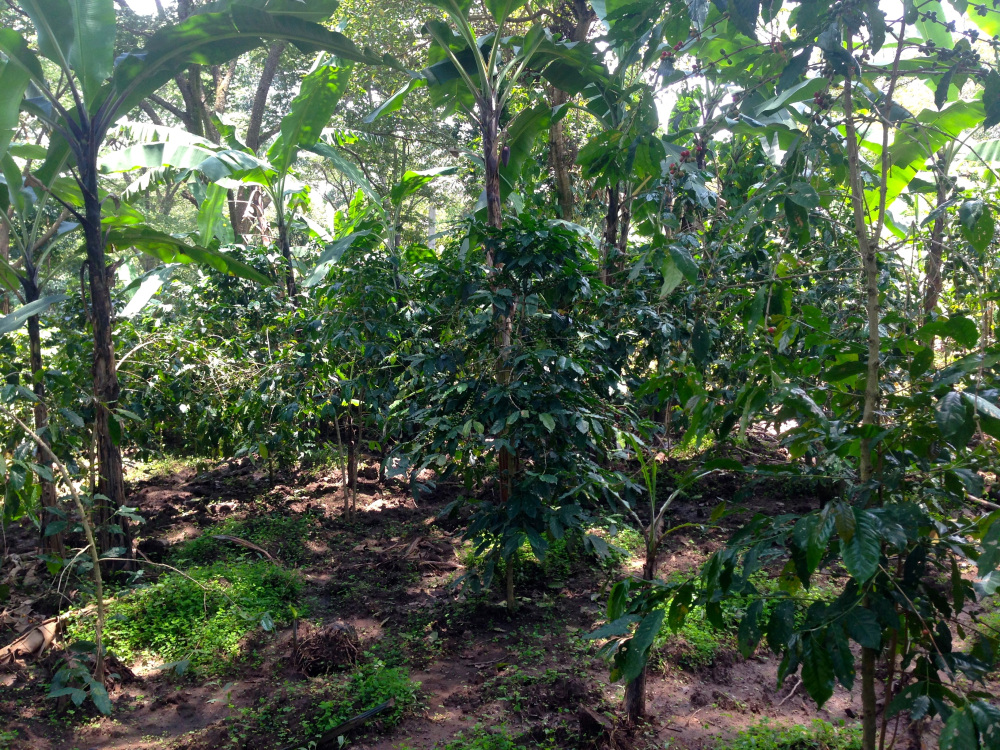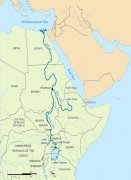Uganda Coffee Bean-Peace Kawomera Cooperative for spreading Happiness, Peace and Music
For professional baristas, please follow the coffee workshop (Wechat official account cafe_style)

JJK and coffee farmers
In the distance, I saw a Ugandan in his 50s, wearing a Jewish hat, singing and dancing loudly to the music in the courtyard. As soon as he saw us, he gave me a big hug. He was the founder of the JJK--Peace Kawomera Coffee Cooperative.
"on 9 / 11, I was supposed to die on Gemini." JJK told us in his coffee field that there were shaded trees, coffee and cocoa, and lambs shuttling under the trees. "on September 11, 2001, I was invited by the Jewish community in New York to share. In the morning, we had planned to visit the Gemini, but because of the delay, we were an hour or two late. Just as we were walking on the street of New York, on the way to the Gemini, the plane crashed into the Gemini Tower in front of us, and flames sprang out of the building. I couldn't believe my eyes. All kinds of rumors spread in the street. At that time, no one believed it was a terrorist attack, and all communications were interrupted, and everyone thought we were dead, and it was not until we walked back for hours that everyone breathed a sigh of relief. " On the same day, I visited Peace Kawomera with the direct trade coffee roaster from the United States. The American sitting next to me looked at JJK in surprise and could not believe his story.
"that day completely changed my life, and I began to think about whether this kind of hatred between different religions and races could happen in our community, and how we could prevent it. As soon as I returned to Uganda, I immediately asked my Muslim and Christian friends to form this coffee cooperative, because coffee is the common language of our community. We grow coffee regardless of religion. By growing coffee and working together, we can fight our enemies-poverty, ignorance and health-instead of raising guns against our own neighbors. "

Visit cooperatives with direct trade roaster in the United States
Uganda is already a multicultural and religious country. During the Idi Amin period, the local Jews in Mbale were oppressed, their land and property were taken away, and the number of people plummeted from more than 3000 to more than 2000. Religious conflicts planted the seeds in this small town not far from Mbale. Although we all live in the same community, Christianity, Islam and Judaism are hostile to each other. How can hatred be resolved? It is a dream in JJK's heart to let everyone cooperate and grow together.
In Uganda, coffee exports account for 20% of the country's GDP and are the most important export products, but most of them are low-quality robusta coffee on the international market. Uganda is rarely seen on the map of boutique coffee in the world, on the contrary, it is mostly found in countries such as Ethiopia, Kenya and Tanzania. Because of the topography, Arabica coffee can only be grown on the slopes of the east and southwest. In fact, Arabica coffee trees were introduced into eastern Uganda from Ethiopia more than 200 years ago. In the Mbale (east) area, coffee has been grown for a long time, and almost every household has coffee trees, but in the past, coffee was bought by middle-market merchants, no matter the quality was good or bad. Prices fluctuate with the market, and farmers have no incentive to work together to grow better coffee beans, so JJK believes that with the help of cooperatives, the pursuit of higher quality coffee can bring villagers of different religious backgrounds together, boost their confidence and greatly increase their income. In addition to their enthusiasm for coffee, every employee of the cooperative likes to play music, play African drums, play guitar, sing their own music, perform in villages irregularly, and even release albums recorded by Smithsonian Folkway Recordings in the United States.

Coffee field

The traditional way of tanning
Peace Kawomera from 2004 to now, a total of 10 years, members from the beginning of more than 2000 people, but also applied for Fairtrade, organic coffee and other international certification, the office from a two-ping small room to now have their own washing coffee machine and sun place, is to be able to produce better coffee, expand Uganda Arabica coffee in the international boutique coffee market, improve the lives of farmers. At present, we have been working with two American Fairtrade coffee suppliers for a long time to improve the quality of coffee and provide scholarships to vulnerable children in the village.
JJK's next goal is to build an interreligious primary school for children in the community. Most local schools are built by missionaries or Muslims, but in fact, every religion has something to learn. Regardless of color and religion, all people have the same blood and should cooperate with each other.
"Peace Kawomera means peace and delicacy. I hope to use our delicious coffee beans to bring peace to our community and spread peace to the world."
Because more than a decade ago, 9 / 11, which shocked the world on the other side of the world, and the mountains of Africa spawned Peace Kawomera, now Peace Kawomera will use their coffee, stories and music to bring the message of peace and happiness to every corner of the world.
Important Notice :
前街咖啡 FrontStreet Coffee has moved to new addredd:
FrontStreet Coffee Address: 315,Donghua East Road,GuangZhou
Tel:020 38364473
- Prev

Coffee producer Uganda introduces the flavor characteristics of Ugandan coffee beans
For professional barista exchanges, please pay attention to the coffee workshop (Wechat official account cafe_style) absolute location: 12113.57 North 321715.45 East Uganda relative location: Uganda Republic, located in eastern Central Africa, reporting a land area of 241,040 km 2 at latitude 1. 30 S and 4. N. and in longitude 29. 30 and 35. Between E. It must be in the north by Sudan, in the east.
- Next

Uganda / West Nile region / White Nile Coffee rare washed Ugandan coffee beans
Professional baristas please pay attention to the coffee workshop (Wechat official account cafe_style) the Nile is the mother river that gave birth to the ancient civilization of Egypt, and the sediment brought from the upstream has become fertile soil downstream, with watersheds reaching nine countries. The White Nile, one of the two tributaries of the upper reaches of the Nile (the other is the Blue Nile), originates from Lake Victoria and is made by light-colored clay suspended in the water.
Related
- Detailed explanation of Jadeite planting Land in Panamanian Jadeite Manor introduction to the grading system of Jadeite competitive bidding, Red bid, Green bid and Rose Summer
- Story of Coffee planting in Brenka region of Costa Rica Stonehenge Manor anaerobic heavy honey treatment of flavor mouth
- What's on the barrel of Blue Mountain Coffee beans?
- Can American coffee also pull flowers? How to use hot American style to pull out a good-looking pattern?
- Can you make a cold extract with coffee beans? What is the right proportion for cold-extracted coffee formula?
- Indonesian PWN Gold Mandrine Coffee Origin Features Flavor How to Chong? Mandolin coffee is American.
- A brief introduction to the flavor characteristics of Brazilian yellow bourbon coffee beans
- What is the effect of different water quality on the flavor of cold-extracted coffee? What kind of water is best for brewing coffee?
- Why do you think of Rose Summer whenever you mention Panamanian coffee?
- Introduction to the characteristics of authentic blue mountain coffee bean producing areas? What is the CIB Coffee Authority in Jamaica?

